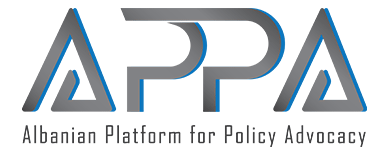
Megi Llubani
1- ‘’RIP Albanian FBI’’
On April 1, the Minister of Interior, Mr. Saimir Tahiri, met with Deputy Director J. Chris Warrener and Deputy Director Brian Mc Cauley of FBI to discuss one of the main ideas and plans, for which the Prime Minister has insisted for a long time now, the establishment of the National Bureau of Investigation. Seems this meeting and initiative was ‘’a miss’’ for the Prime Minister and Minister of Interior, after the decision of the Constitutional Court (a few weeks after the event) to rule it inconsistent with the Constitution of the Republic of Albania. The National Bureau of Investigation would reform the existing structures of investigation and prevention of crimes to avoid clashes and parallel investigations from different institutions. According to the draft law of June 18, 2014 this special structure will conduct tracking activities for criminal acts in the area of corruption and organized crime related to it, and will have double subordination between the General Police Director and General Prosecutor. The latter seems to be the Achile’s heel in the decision of the Constitutional Court to declare it violates the Constitution, especially in articles 27-36. The full decision, together with the respective reasoning for overthrowing this part of the draft law for the police forces, will be published in the following days by the Constitutional Court.
Considered the Albanian version of the American FBI and planned in cooperation with experts of the latter, the Bureau would be granted ‘’super powers’’ in exercising its duties. The current draft law raises two questions:
- What control mechanisms will be in place for this organism, referring here to the general work, not only the nomination and dismissal of the head and other employees? Article 34 is especially concerning. According to it: ‘’1. The National Bureau of Investigation will collect and administer each data connected to the tracking and investigating activity. 2. During investigation procedures, legal entities, public entities and citizens are obliged to grant unlimited access to the officer of the judicial Police and National Bureau of Investigation to collect evidence and use them in a criminal process, in accordance with provisions of the Code of Criminal Procedure’’. This unlimited access to data and the obligation of identified parties in granting required information, leaves space for breach of competencies, especially in the context of a country like Albania, extremely politicized and with an unconsolidated justice system.
- As an important organism in investigating issues of corruption and organized crime related to it, how would transparency and independence be ensured if its work and organization are defined and determined by the Minister and the head of the Bureau is nominated again by the Minister of Internal Affairs and proposed by the Director of the State Police?
The idea of establishing an institution that would unite the competencies of several other organisms is not noly efficient but promoted by the international community as well. However, before approving draft laws and undertaking such initiatives, there is a need for consultation mechanisms with all relevant stakeholders, within and outside the governing system. It is not the first time we undertake policies copying a model, often bad and unheard of, therefore we need more reflection and adaptation with the context and environment offered by a country like Albania.
2- New uniforms as façade for old failures
One of the leitmotifs of this government in the field of security and order is reinstating the trust of citizens towards state police, changing the latter’s image and boosting cooperation between both sides to achieve a successful community policing. While the aim is noble, the means chosen to achieve it can be improved as they do not address the roots of the problem with the image of state police and how its work is perceived by Albanian citizens. Since the beginning of its mandate as Minister of Interior, Mr. Tahiri followed a set of policies aiming to offer a different panorama for one of the most honored professions in a country. One of the first steps was promoting and introducing more women in the police force (whose presence was noted in the first line of different protests organized in recent years, restoration of the General Directorate of Police, to create accessible spaces for citizens and investment in offices for community service. In line with these decorating initiatives, the Ministry of Interior will put more efforts, energies and money to an international competition for new police uniforms. In his speech during the opening ceremony of the international competition, the same approach of blaming predecessors continues in regards to the situation of the state police, the lack of respect towards blue uniforms and even blaiming the opposition for the fact that bad management of the previous government has led children to give up dreaming of becoming a police officer when they grow up. Introducing new uniforms, however aesthetically improved they are, will not have a substantial impact in improving the living conditions for police officers and will not increase the level of their income. We can’t say corruption is present due to the lack of new uniforms for police forces.
To address the issue of endemic corruption in the ranks of police officers, it would be helpful for Minister Tahiri to reflect on successful examples of police reforms, with the case of Georgia as one of the most discussed, in the verge of a revolutionary approach. Although the method applied in Georgia a decade ago, has sparked vivid discussions and created different opinions and evaluations, it is usegul to analyze and adapt it to the Albanian context. Long story short, immediately after the Rose Revolution of 2004, the newly elected President of Georgia dismissed everyone in the police forces and placed new traffic police. This all happened in a matter of weeks, followed by the reconstruction of the whole police force from scratch. In a survey of a few years back, trust in police forces in Georgia stood at 89%, a radical change from the earlier perception for this category as rotted in its foundations. Although the approach is unusual and in the Albanian context its politicization would be unavoidable, the example gives a valuable lesson that Albanian politicians seem not to grasp: ‘’Where there is willingness and readiness to achieve a goal and good governance, there are means that make it possible’’. In stead of repeating ad infinitum the expressions that are becoming inseparable part of our day, which are also hard to believe, action can take place instead.
References:
Ministria e Punëve të Brendshme: http://www.punetebrendshme.gov.al/
Shqiptarja.com: http://shqiptarja.com/m/aktualitet/kushtetuesja-rr-zon-byron–e-hetimit-esht–i-papajtuesh-m–286080.html
TV Klan: http://tvklan.al/kushtetuesja-rrezon-byrone-kombetare-te-hetimit/
Qendra e Botimeve Zyrtare: www.qbz.gov.al
Kryeministria: www.kryeministria.al
An unusual experience of police reform: The Republic of Georgia – https://improvingpolice.wordpress.com/2012/09/12/an-unusual-experience-of-police-reform-the-republic-of-georgia/




